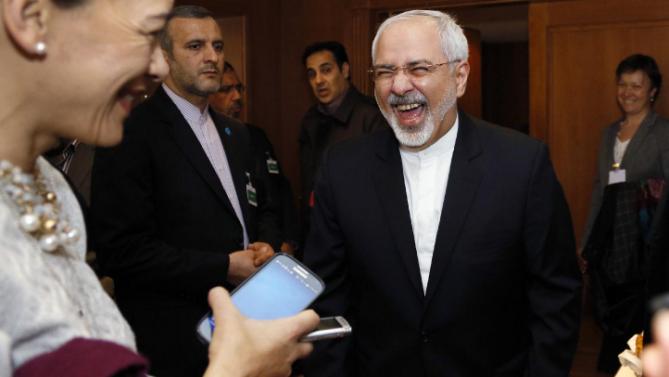
Written By: Blank Space
The US and Iran have reported progress on a deal that would ‘clamp down’ on Tehran’s nuclear activities for at least 10 years, but then slowly ease restrictions on programs that could be used to make atomic arms.
Officials said there were still obstacles to overcome before a March 31st deadline, and that any deal will face harsh opposition in both countries. It would also be sure to further strain already tense US relations with Israel, whose leaders oppose any agreement that doesn’t end Iran’s nuclear ambitions.
The core idea would be to reward Iran for good behavior over the last years of any agreement, gradually lifting constraints on its uranium enrichment and slowly easing economic sanctions.
Image: Ali Akbar Salehi, head of Iran’s Atomic Energy Organization
Iran says its goal is not to create nuclear arms but rather needs enrichment only for energy, medical and scientific purposes, but the US fears Tehran could re-engineer the program to produce the fissile core of a nuclear weapon.
Experts say Iran already could produce the equivalent of one weapon’s worth of enriched uranium with its 10,000 presently operating centrifuges. Several officials spoke of 6,500 centrifuges as a potential point of compromise, with the US trying to restrict them to Iran’s mainstay IR-1 model, instead of more advanced machines. However, Iran’s supreme leader, Ayatollah Ali Khamenei, said last year that his country needed to increase its output equivalent to at least 190,000 of its present-day centrifuges.
Under one possible agreement, Iran also would be forced to ship out most of the enriched uranium it produced or change it to a form that would be difficult to convert for weapons use. It takes about one ton of low-enriched uranium to process into a nuclear weapon and officials said that Tehran could be restricted to an enriched stockpile of no more than approximately 700 pounds.
The officials represent different countries among the six world powers negotiating with Iran — the United States, Britain, China, France, Germany and Russia. They spoke on condition of anonymity because they were not authorized to talk publicly about the negotiations.
Even if the two sides agree to a preliminary deal in March and a follow-up pact in June, such a two-phase arrangement will face fierce criticism from Congress and Israel, both of which will argue it fails to significantly curb Tehran’s nuclear weapons potential.
Defense Minister Moshe Yaalon, warned that such a deal would represent ‘a great danger’ to the world and said it, “will allow Iran to become a nuclear threshold state.”
In Washington, President Barack Obama has been trying to keep Congress from passing new sanctions against Iran that he says could further scuttle diplomacy and rekindle the threat of a new mid-east war.
For the United States, the goal is to extend to at least a year the period that Iran would need to surreptitiously ‘break out’ towards nuclear weapons development. Daryl Kimball, of the Washington-based Arms Control Association, said that with the IAEA’s additional monitoring, the deal taking shape leaves, “more than enough time to detect and disrupt any effort to pursue nuclear weapons in the future.”
In exchange, Iran wants relief from sanctions that are crippling its economy and the US is now talking about phasing in such measures.
SOURCE: news.yahoo.com





